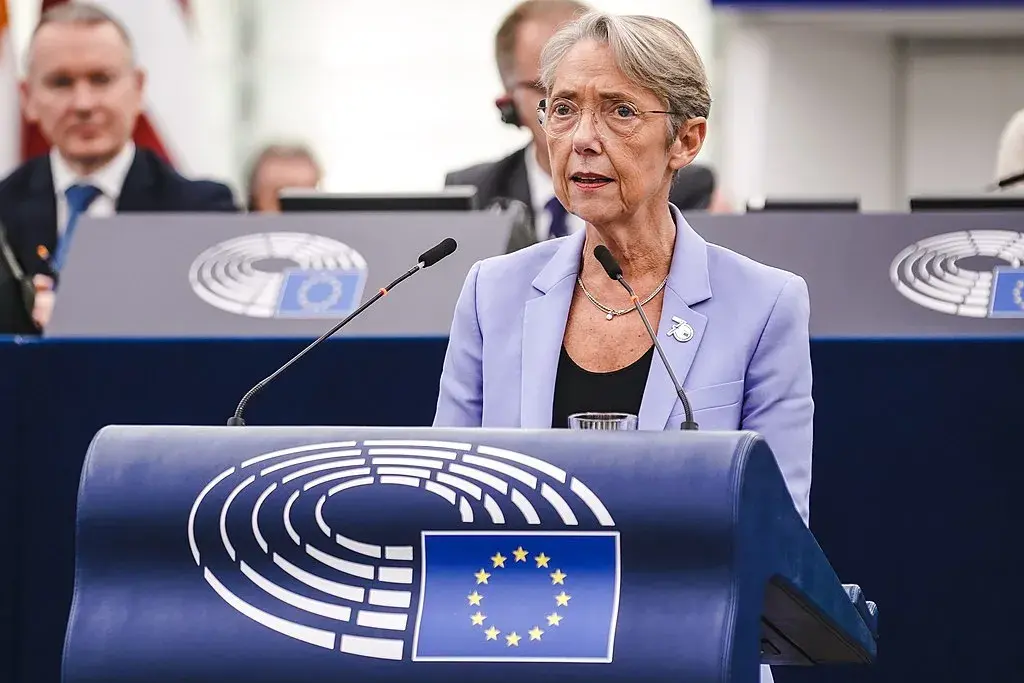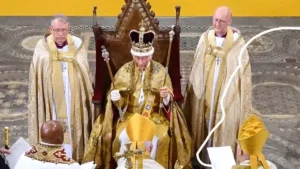The resignation of French Prime Minister Elisabeth Borne on Monday marks a pivotal shift in President Emmanuel Macron’s administration as he seeks to revitalize his second term ahead of significant events such as the European Parliament elections and the impending Paris Olympics.

French Prime Minister Elisabeth Borne tendered her resignation on Monday, marking a pivotal shift in President Emmanuel Macron’s administration as he endeavors to inject fresh momentum into his second term. This transition precedes crucial events such as the upcoming European Parliament elections and the imminent Paris Olympics.
President Macron refrained from immediately announcing a successor, underscoring the gravity of the decision amid a landscape of political turbulence in France. Borne’s departure follows a tumultuous year marked by vehement controversies over proposed reforms to the pension system and immigration policies.
The timing of this leadership change, just months before the European Parliament elections, aligns with expectations of significant gains for eurosceptic factions amidst widespread public discontent concerning escalating living expenses and perceived governmental inadequacies in managing migration.
Opinion polls illustrate a notable discrepancy, with Macron’s party trailing behind far-right leader Marine Le Pen’s party by a margin of eight to ten points leading up to the June elections.
Rumors about an imminent governmental reshuffle had been rife, particularly following the contentious adoption of stringent immigration regulations in parliament, which underscored deep divisions within Macron’s centrist majority. Macron himself had alluded to an impending political overhaul.
Potential candidates speculated to assume Borne’s position include Education Minister Gabriel Attal and Defense Minister Sebastien Lecornu, both poised to potentially become the youngest French prime minister in history. Additionally, Finance Minister Bruno Le Maire and former Agriculture Minister Julien Denormandie have surfaced as potential contenders in public discourse.
The change in prime ministerial leadership may not necessarily denote a significant shift in political strategy but rather signal a desire to move beyond previous reforms, such as pensions and immigration, redirecting focus towards new priorities, notably achieving full employment.
Borne, a reserved bureaucrat with a background serving under various Socialist Party ministers before joining Macron’s administrations, held the prime ministerial position since May 2022, becoming only the second woman to do so.
During Macron’s second term, his government, led by Borne, grappled with a more volatile parliamentary landscape after losing its absolute majority following his re-election in 2022. Despite this, Macron’s advisors highlight successful implementation of pivotal aspects of his economic agenda in the initial phase of his second term, envisioning more consensual reforms in education and euthanasia in the future.
Nevertheless, Macron’s prior use of executive powers to enforce an increase in the retirement age to 64 triggered extensive and violent protests. The impending reshuffle is anticipated to intensify the internal competition within Macron’s camp as potential successors, including former Prime Minister Edouard Philippe, Interior Minister Gerard Darmanin, and Le Maire, position themselves for the next presidential election in 2027.







